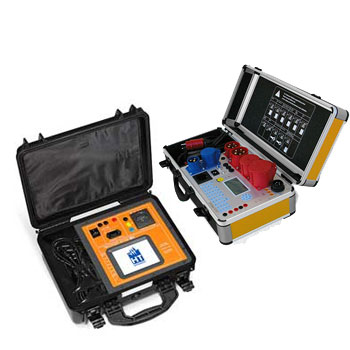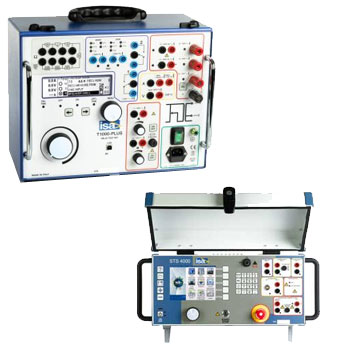
Photo by Robert Stump on Unsplash
The food industry is a demanding sector where precision, efficiency, and hygiene are of utmost importance. In this context, flow meters play a crucial role by ensuring accurate monitoring and control of liquids and gases in various production processes. From bottling beverages to overseeing cleaning processes, flow meters help guarantee the quality and safety of food production. This article explores how flow meters are used in the food industry, the technologies involved, and the benefits they offer.
1. Importance of Flow Measurement in the Food Industry
Flow meters are essential for monitoring and controlling liquids and gases in industrial processes. In the food industry, this includes monitoring water, milk, juices, oils, sauces, and many other liquid products that are transported, mixed, and processed during production. Gases like CO₂ are also used for carbonation in beverages, or steam for sterilization. Various types of flow meters are used to precisely monitor these processes, tailored to the specific requirements of the food industry.
Some key factors monitored by flow meters in food production include:
- Precise dosing: To ensure product quality and consistency, ingredients must be measured and supplied accurately.
- Process control: Flow meters help monitor processes such as pasteurization or homogenization with precision.
- Safety: They assist in monitoring cleaning and sterilization processes, ensuring compliance with hygiene standards.
2. Technological Solutions for Flow Measurement
Different technologies are used for flow measurement in the food industry. The choice of the right technology depends on the specific requirements of the product and process. The most common technologies are:
a. Magnetic Inductive Flow Meters
This type of flow meter is widely used in the food industry as it contains no moving parts, making it particularly hygienic and low-maintenance. The magnetic inductive flow meter operates on the principle of electromagnetic induction, where a magnetic field induces a voltage in the flowing liquid. This voltage is proportional to the velocity of the medium and can be used to calculate the volumetric flow rate.
Advantages for the food industry:
- Hygienic design without moving parts, making it easy to clean.
- Suitable for conductive liquids like milk, juices, and water.
- High accuracy and repeatability.
b. Ultrasonic Flow Meters
Ultrasonic flow meters work by sending sound waves through the medium and measuring the time it takes for these waves to travel from one sensor to another. The flow rate is determined based on how the velocity of the medium affects the transit time. This technology is particularly suitable for low to medium viscosity liquids and can also be used for non-conductive liquids like oils or cleaning agents.
Advantages for the food industry:
- Contactless measurement, making it highly hygienic.
- No moving parts that could interfere with the medium’s flow.
- Can be used in high-hygiene environments or with sensitive liquids like cream.
c. Coriolis Flow Meters
Coriolis flow meters use the Coriolis effect to measure the mass flow rate of a liquid or gas. The medium flows through a vibrating tube, and the mass flow alters the tube's vibration. This change is used to calculate the mass flow rate. This technology is highly accurate and is often used for viscous or complex liquids like syrup or oil.
Advantages for the food industry:
- High measurement accuracy, especially for viscous media.
- Can measure both mass and density of the medium, providing additional process information.
- Ideal for high-value or viscous liquids where precision is crucial.
d. Turbine Flow Meters
Turbine flow meters measure volumetric flow by detecting the rotation of a turbine within the measuring tube. The turbine's rotational speed is proportional to the velocity of the liquid. However, this technology may not be suitable for all applications, as it contains moving parts that can wear out or pose hygiene risks.
Advantages for the food industry:
- Cost-effective and easy to install.
- Suitable for clear liquids like water or low-viscosity liquids.
3. Applications of Flow Meters in the Food Industry
Flow meters are used in many different areas of food production. Some of the most common applications include:
a. Dosing and Filling
In the production of beverages, sauces, or liquid foods, it is crucial that ingredients are supplied in precise amounts. Flow meters ensure accurate dosing, which leads to consistent product quality. Flow meters are also used in the filling industry to ensure that each bottle or package contains the exact amount of product.
b. Monitoring Cleaning Processes
Hygiene is of utmost importance in the food industry. To ensure that production facilities are clean and free of contamination, cleaning processes are regularly carried out. Flow meters play a vital role in monitoring the amount and speed of cleaning fluids, ensuring that all areas of the plant are properly cleaned and sterilized.
c. Water Management
Water is needed in many processes in food production, from cleaning to the actual manufacturing of products. Flow meters help monitor and control water consumption precisely, saving costs and promoting sustainable production.
d. Process Control in Pasteurization
Pasteurization is a critical process in the food industry, especially in the production of dairy products, juices, and canned goods. Flow meters monitor the flow of products through the pasteurizer, ensuring that they spend the required time at the correct temperature to kill microorganisms without compromising product quality.
e. Carbonation of Beverages
In the production of carbonated beverages like soft drinks and beer, carbon dioxide (CO₂) is injected into the liquid. Flow meters measure and control the CO₂ flow to ensure that the beverage contains the correct amount of carbonation. Precise control of the CO₂ content is crucial for both the taste and shelf life of the product.
4. Benefits of Flow Meters in the Food Industry
Flow meters offer the food industry several benefits, improving both product quality and production efficiency:
a. Precision and Consistency
Flow meters ensure that ingredients are supplied in the correct quantities and that production processes are consistent. This leads to high product quality and uniformity, which is critical in the food industry.
b. Hygiene
By using flow meters without moving parts, such as magnetic-inductive or ultrasonic flow meters, hygiene in production can be ensured. These devices are easy to clean and sterilize, meeting the high hygiene standards of the food industry.
c. Cost Efficiency
By accurately monitoring the flow of liquids and gases, production processes can be optimized, reducing unnecessary consumption of resources like water or raw materials. This leads to cost savings and increased efficiency.
d. Sustainability
The food industry is under increasing pressure to operate more sustainably. Flow meters help optimize the use of water and energy, minimize waste, and improve overall production efficiency. This is a crucial step toward more environmentally friendly and resource-saving production.
e. Process Safety
Flow meters contribute to the safety of processes by enabling precise control and monitoring of production steps. This is especially important in critical processes such as pasteurization or sterilization, where strict adherence to time and temperature requirements is essential.
5. Challenges in Implementing Flow Meters
Despite their many benefits, companies in the food industry also face challenges when implementing flow meters. Some of the key challenges are:
- Selecting the Right Technology: Not all flow meters are suitable for every application. The choice of the right measuring device depends on the type of medium, hygienic requirements, and process conditions.
- Maintenance and Calibration: Even though modern flow meters are often low-maintenance, they need to be regularly calibrated to ensure long-term accuracy.
- Integration into Existing Systems: In many production facilities, flow meters must be integrated into existing automation systems, which can present technical and organizational challenges.
Conclusion
Flow meters play an indispensable role in the food industry. They help optimize production processes, ensure product quality, and increase efficiency. Thanks to modern technologies such as magnetic-inductive, ultrasonic, and Coriolis flow meters, food manufacturers can perform hygienic, precise, and reliable measurements that meet the industry's high standards. Despite the challenges in implementation, flow meters offer significant advantages that ultimately lead to improved product quality, cost savings, and more sustainable production.
- The application area for Oval Wheel Meters of the family Flowal Plus encompasses the simple, reliable and costeffective measurement of liquid volumes or volumetric flow rates. They have an extremely robust design and combine years of experience with state-of-the-art technologies. They can be used in various industries, e.g. mechanical engineering, plant construction, food industry, semiconductor industry, environment industry, automotive industry, etc. Due to the available material combinations, this series is also suitable for measuring aggressive or corrosive media.
- Oval Wheel Meter of the family Flowal Plus consists of the following main components: • measuring transducer: measuring chamber with oval wheels • pulse pick up or multifunctional electronic
 Datasheet Datasheet |
- Flexible and unique process connections
- Standard liner options that fully cover the food and beverage applications
- Short delivery time on standard process connections
- Sanitary design for CIP/SIP cleaning
- SITRANS FM portfolio – our integrated platform enables flexible use of the MAG 500 / 6000 transmitter for all products (MAG 5100 /3100/ 1100): • Unique SensorProm technology - stores critical, sensor-specific data and passes it to the transmitter. This allows a simple, flexible commissioning of the sensor. • Plug & Play - allows easy on-site replacement and commissioning of the transmitter in just minutes • "Hot swapable" - exchangeable during operation • Mounting flexibility - compact or separate installation possible • Validated calibration ensures accurate flow measurement. Each Siemens flowmeter is calibrated in facilities that are individually accredited to ISO / IEC 17025. • Service and diagnostics - Designed for MAG on-site verification with traceable certification. Regular calibration of the SITRANS FM Verificator ensures accuracy in the field.
 Datasheet Datasheet |
 User Manual User Manual |
Das digitale Coriolis-Durchflussmesssystem SITRANS FC330 erhöht die Effizienz jedes Flüssigkeits- und Gasprozesses. Das Ergebnis ist ein Durchflussmessgerät, das nicht nur ausgezeichnete Genauigkeit und Zuverlässigkeit bietet, sondern auch platzsparend und bedienerfreundlich ist. The SITRANS FC330 digital Coriolis flow system enhances your productivity by increasing the efficiency of every liquid and gas process. The result is a cutting-edge flowmeter at the top of its class in accuracy and reliability – yet space-saving and easy to work with. The FC330 flowmeter consists of a SITRANS FCS300 sensor and a SITRANS FCT030 transmitter.

 Datasheet Datasheet
|
 User Manual User Manual
|














































































































































































